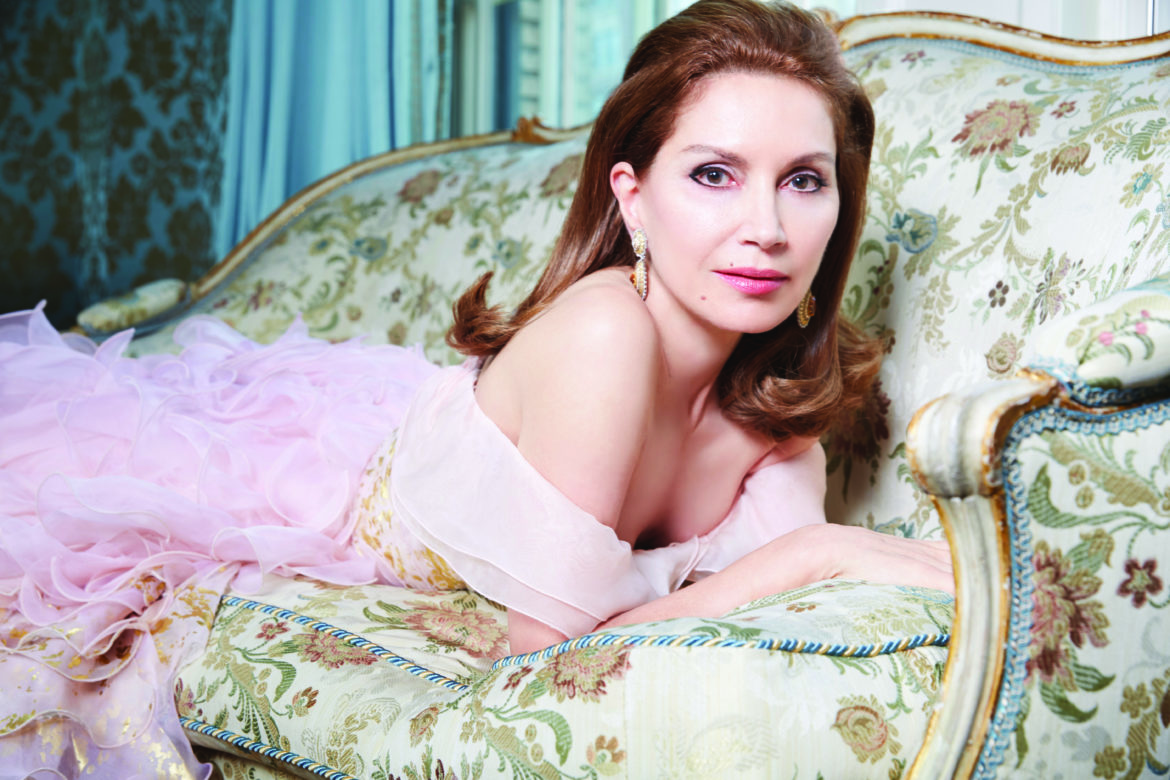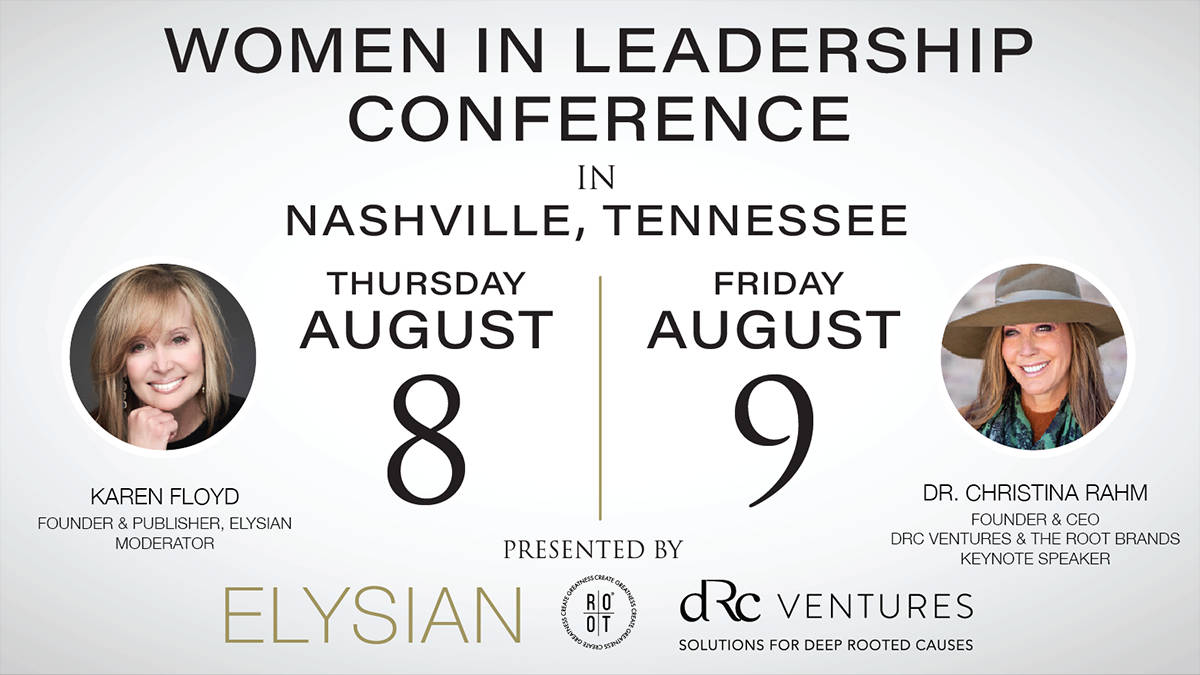Gracing magazine covers and hosting galas in beautiful ballgowns would give the impression that JEAN SHAFIROFF lives a glamorous life. Behind the curtain, she is a zealous philanthropist, often volunteering her days and nights as the leader of several charitable causes. Jean was raised in a household that prioritized education, hard work and giving back—traits that she uses today to serve on multiple national and regional philanthropic boards, chair countless galas each year and raise millions towards the causes she is particularly passionate about: fashion, women, animals and health care. She has been described as “one of the first ladies of philanthropy” and, time after time, she is honored by organizations for her impactful actions and contributions. Recently, Jean served as the national spokesperson for the American Humane Society’s Feed the Hungry COVID-19 program. She currently hosts the LTV television show Successful Philanthropy, which was inspired by her book of the same name where she teaches “how to make a life by what you give.” With close to a million followers on Instagram, Jean uses every platform available to her to promote the concept of philanthropy and show how others can help. She plans to raise the bar again soon with dreams of bringing her television show to a national audience.
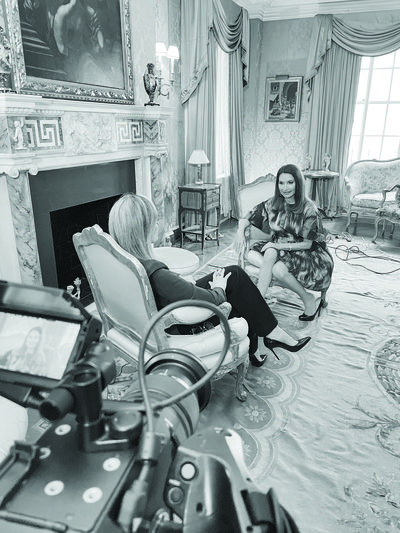
How did your father play such a significant role in your educational journey?
My father was a schoolteacher and he taught music to grammar school children, as well as high school students. He studied at The Juilliard School and then Columbia Teachers College where he earned a master’s degree. During his educational pursuits, he went into the army to serve during World War II. He performed in the army’s band, which traveled around the country but was
never posted overseas. He truly loved teaching and instilled in our family that education was vitally important.
My dad wanted me to be a nursery or kindergarten teacher because he thought it would be an easier life. I started college as pre-med, but I did not care for chemistry or physics. I liked math and biology, so I decided to pursue a career in physical therapy and then, later, a career as an investment banker on Wall Street.
You have a Bachelor of Science as well as an MBA from Columbia University, correct?
I have an undergraduate degree in physical therapy from the College of Physicians and Surgeons at Columbia with a BS in physical therapy. I also have an MBA with a major in finance, from the Graduate School of Business at Columbia University. My aptitude in math, calculus, and statistics was useful for the MBA. I enjoyed Columbia and worked hard to get good grades and to earn my degrees.
How did your work as a physical therapist impact your career decisions?
I worked at St. Luke’s Hospital, an inner-city hospital, where I witnessed a lot of human suffering. Many of my patients were living at or below the poverty level and experienced problems with physical health. Seeing how so many people lived in such hardship and what they went through certainly changed me. After a short career as a physical therapist, I decided that I wanted to combine my work as a physical therapist with an MBA in finance. I thought I would be able to do more for people and make a better living for myself. I had to contemplate the future, so I went back to Columbia where I earned an MBA at the Graduate School of Business at Columbia University. I then went on to work as an investment banker on Wall Street. My career on Wall Street taught me many skills that I use for the philanthropic work I am involved with today.
How and when did you enter the world of philanthropy?
My interest in philanthropy stems from my upbringing. I attended 12 years of Catholic school where the nuns taught us the importance of giving back. I will add that all religions teach the importance of giving back. Whether you are Christian, Jewish, Hindu, Muslim, or Buddhist—there is something in the precepts of every religion to give back.
My father would come home after a day’s work and talk about how important the students’ education was to him. My mother was always involved in bake sales for charity and also did volunteer work. When my daughters entered school, I was a class mother for several years and must have made 2,000 brownies right in our Manhattan apartment for all the bake sales. I also got involved with volunteer fundraising for the Dalton School. In addition, I served on a few charity boards while my daughters were growing up. Today, I serve on eight charity boards and am about to add a ninth board to the list.
Your mother also worked outside of the home?
Before she had a family, my mother worked as a textile designer in New York City. After she was married and became pregnant with me, she gave up her career to raise the family. I was the first child and I have two younger brothers.
Your childhood was full of activity, correct?
I took ballet lessons and acrobatics at that time. Then I was also on the gymnastics team and was a cheerleader. In high school, I was president of the Leaders Club and as a junior voted most likely to succeed. I studied very hard because that was an integral part of the family. My parents insisted on us getting a good education. I enjoyed studying and learning.
No doubt, education was central to who and what you are. Did you pass that foundational belief to your daughters?
I would like to think so. My oldest daughter has a master’s in social work. She serves on a charity board and does a great deal of volunteer social work. Our younger daughter is a college graduate and also is a graduate of the International School of Photography (ICP). She worked as a photojournalist for Reuters for a few years. Several years ago, she started her own charity called Global Strays. She is the volunteer president and works day and night for this cause. I am proud of both of my daughters and love that they are young philanthropists.
Philanthropy must pass from generation to generation.
One of the eight charity boards I serve on is Global Strays. We raise funds and contribute monies to help animal rescue groups in developing nations. Our work includes funding education on the proper care of animals, spay and neuter programs, veterinary care, and other animal-related work. Right now, Global Strays is focused in Latin America and sends funding to groups located in Nicaragua and Colombia, where there is great need. Global Strays will expand to other countries in the future.
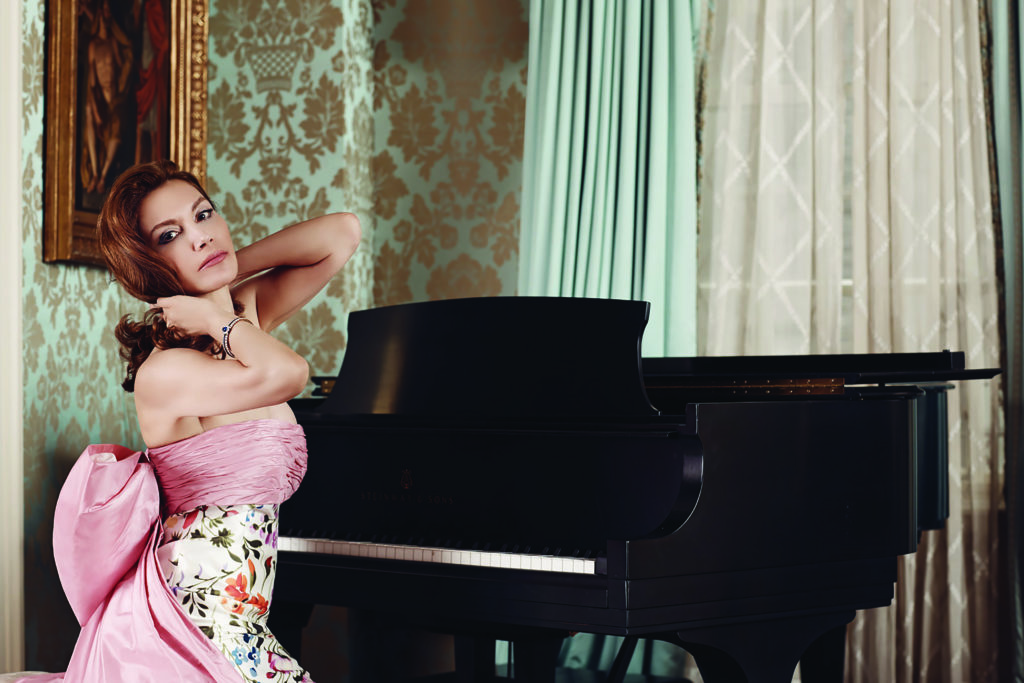 Jean Shafiroff wearing an Oscar de la Renta floral tube-style gown with pink satin-wrapped bodice. The satin bow detail at the back makes a subtle statement as an abbreviated train. PHOTOGRAPH BY MICHAEL PANICCIA HAIR BY HENRY DE LA PAZ MAKE-UP BY KIMARA AHNERT
Jean Shafiroff wearing an Oscar de la Renta floral tube-style gown with pink satin-wrapped bodice. The satin bow detail at the back makes a subtle statement as an abbreviated train. PHOTOGRAPH BY MICHAEL PANICCIA HAIR BY HENRY DE LA PAZ MAKE-UP BY KIMARA AHNERT
How important was it for you to be a stay-at-home mother?
I was fortunate in that I had the option of being able to be a stay-at-home mother. Early in our marriage, my husband and I were both working on Wall Street and had exceedingly long hours. I was getting home from work at 9 p.m. to 10 p.m., and my husband’s hours were exceptionally long. After I became pregnant, 18 months after getting married, I realized that it would be difficult for me to do everything. If I continued to work, I would never see my children and that they would be raised by nannies, so I left my career. As I look back, I think I did the right thing because that time spent with my daughters was invaluable to who they are today.
Many women do not have that choice. They must work and they must juggle a fulltime career while raising a family. Those women do an amazing job. For me, I do not regret my decision to be a stay-at-home mom. I would have never been able to spend time with my daughters with the career I had on Wall Street. Even if you are a stay-at-home mom and do everything right, a lot is up to fate.
How did you meet your husband?
I was a student at the Columbia Graduate School of Business and attended a party at the Park Avenue Squash Club for alumni and students. My husband was not involved with the Columbia Graduate School of Business at all, but he was playing squash at the club. We were introduced and when everyone left, he asked me out. I was unsure, so the first thing I asked was if he was married because I wasn’t going to date anyone who was, of course. When he said no, I gave him my phone number. A few weeks later we went out, but not until I had completed my final exam in statistics because I was very serious in graduate school. I knew that there was no question I had to complete my academics. There were many Saturday nights when I just stayed in my graduate school apartment and studied, but I didn’t care. I wanted to get good grades and I wanted to graduate so that I could get a top job.
Was it love at first sight for you?
I think on the second date I fell in love with my husband. I honestly admired him. We are very different people and have very different personalities. But we are both driven. Presently, he is a vice chairman of Stifel, which is a large investment firm based in St. Louis. He works nonstop and I have accepted that. When I married him, I knew I would marry a man who loved to work. He has tremendous integrity, a good work ethic, and is a family man.
Do you and your husband share the same religion?
No, I am a Catholic and he is a Reform Jew. We have never had one argument over religion.
Were your daughters raised in the Jewish or in the Catholic religion?
One daughter goes to church and the other daughter is Jewish. We raised them with an understanding of all religions. Initially, they studied Judaism. I encouraged my daughters to follow whatever path they wanted to follow.
Did they attend Hebrew school?
They went to Temple Emanuel Nursery School and, subsequently, the Dalton School. My older daughter graduated from Dalton and the younger one, after eighth grade, transferred to Columbia Prep. My older daughter was always very academic and loved the arts. The younger daughter was a real athlete and her first year at Columbia Prep she played on the varsity volleyball team. She was involved with all sports and thrived academically in that environment.
How much time do you dedicate to your work daily?
Most of my day is spent working. I have a lot of responsibilities and I take them very seriously.
Your mother was a textile designer. Do you think that her interest sparked
your attraction to style and fashion?
It might have, yes. I remember some of her drawings. She would make renderings with women wearing beautiful clothing. They were 1950s style, reminiscent of the cover of Vogue. I think, as a result, my interest in fashion peaked. I love beautiful clothing because it gives a woman a chance to express who she is. I will add, even if you do not have the finances, you can be stylish on a low budget. I admire that ability; you just need time to put it all together.
On a side note, you have a tremendous Instagram following of almost a million followers.
I have about 800,000 Instagram followers. I work with someone in London who uploads the posts, but 99.9 percent of the time I create the content because what you put on social media represents you. It is your message. Instagram is a platform where I promote philanthropy and positive living. I also use it to give my followers a glimpse into my life.
Do you work a calendar month out or post every single day as part of your routine?
Daily, because my life is always evolving. I am involved as a chair and host of many charity events, and I attend many philanthropic functions. I think Instagram should be inspirational. If you want to find out about somebody, just go to their Instagram or their Facebook accounts.
I think part of being a public person is to give people the ability to look at your life a little and see what you do. Sometimes the posts might be a little silly. You might also ask followers for input. Just put on a pair of sunglasses and you can engage your audience by asking, “Do you like these? Should I buy them?” People are very interested in giving their opinion.
What is your intended purpose for social media?
I am very involved in philanthropy. I also host a TV show called Successful Philanthropy. I wrote a book entitled Successful Philanthropy: How To Make A Life By What You Give. The purpose of my Instagram account is to promote philanthropy, good values. and the work I do. I try to be inspirational and to send a positive message. It is a powerful platform. Once you become a philanthropist, I think the next step is to promote others who do good works. To help recognize their efforts, I bring philanthropic leaders on my TV show. I also do that with some of the writing I do. I make no salary, so everything I do is as a volunteer.
Why do you do it?
I feel very fortunate and have been blessed with a good life. Those who have great resources have an obligation to give. At the end of my life, I want to feel that I did something of
importance and that I didn’t just take from this world, rather that I was helpful to others. Everyone should want to feel this way.
When people look at you, they see a perfect life—a beautiful woman with an impactful profession.
You are very kind. I am a hard-working person and love the volunteer work I do. I hope to continue my philanthropic work for as long as possible—until the day I cannot do it any longer. It is a great blessing to be able to do it. The resources that God has given to me, I must use wisely, and I must help others. I must do my very best to be a good role model. I am not perfect. We all make mistakes, but I love my work and I want to continue doing it.
Tell me something that no one knows about you.
I don’t think people realize that I am constantly working. I don’t think people think that Jean Shafiroff would be up in the middle of the night working or that she would spend many days never leaving her home because of the volunteer work she does. I often work on my computer from the moment I wake up to the moment I go to sleep. The only way to achieve success in this world is through hard work. I would like people to also know that I really believe in kindness. The first step to becoming a philanthropist is by being kind to others, and the second step is to share resources.
Do you think that kindness is somehow perceived as weakness?
It could be, but I gravitate towards kind people versus gossipy people. I stay away from those that enjoy gossip. I’ll be nice to them, wave, and say hello. But I do not want to spend much time with them. Do you think with age, you have purposefully pulled yourself back? I think that as I have become more of a public person I have become more guarded. I interface with all types of different people, but still do not like gossip. I was raised in a household where gossip was not tolerated. My mother did not like it. My father did not like it. I remember in grammar school that the girls were very gossipy. And after being the recipient of serious gossip in the sixth grade, I decided I never wanted to be that way to anybody.
If you could ask God one question, what would that be?
Why is there so much suffering in this world, and will the suffering end after this lifetime? I hope it will.
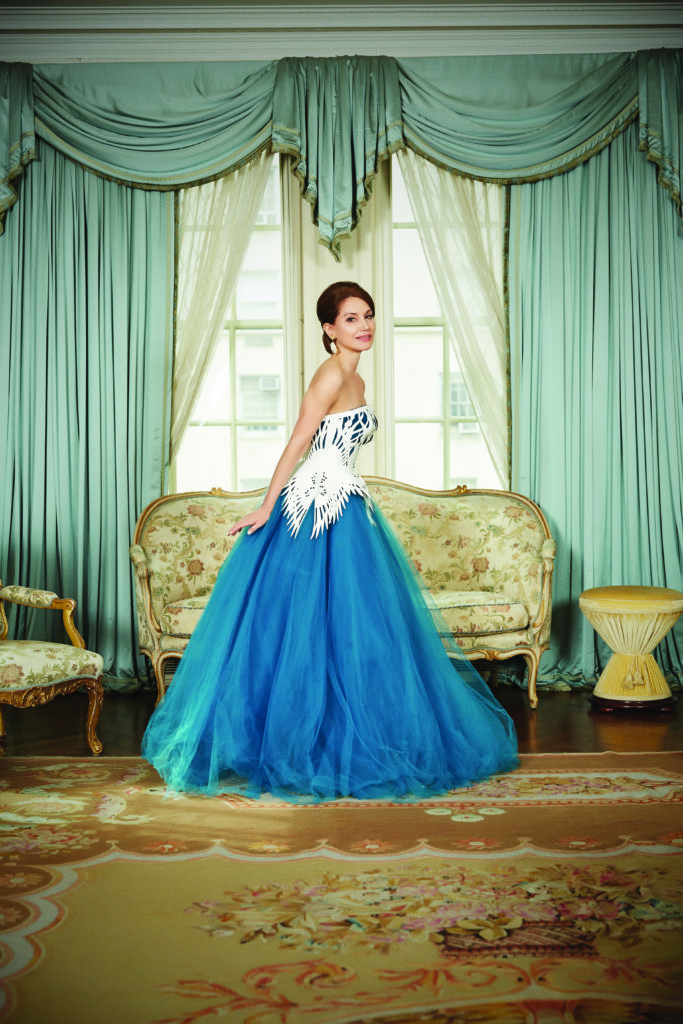
Is your husband equally involved in the charitable endeavors that you have selected?
My husband supports my work and believes in it. However, he works full-time. He does not have the same amount of time to dedicate to the causes I have chosen. He serves on a few charity boards, and he supports my work. He thinks I work too hard and thinks I should do less, but he supports me wholeheartedly.
What are your primary areas of philanthropic focus?
There are really four main philanthropic focuses: underserved populations, women’s rights, health care, and animal rights. Presently, I serve on eight charity boards: American Humane, New York Women’s Foundation, NYC Mission Society, Southampton Hospital Association, French Heritage Society, Couture Council, Global Strays and Southampton Animal Shelter Honorary Board.
As a Catholic, I served as a trustee of the Jewish Board, the largest mental health charity in the state of New York. I now serve as an Honorary Trustee of the Jewish Board. I understand you love fashion. Yes, fashion and style are a passion of mine. I serve on the board of the Couture Council, which raises funds for the Museum at FIT (Fashion Institute of Technology). I enjoy serving on this board, which also promotes education.
Tell me about some of these?
The New York Women’s Foundation is more about creating a just world and empowering women out of poverty. It works to elevate women and families. It embraces women’s issues and women’s rights. The New York City Mission Society works with underserved children of New York City. We provide after school and summer programs, many of which are educational.
Tell me about your support of your French heritage?
I serve on the French Heritage Society board. This is a charity that fosters a friendship between France and the United States. Our purpose is to help preserve some of the historic buildings in France and the United States. We also have a scholarship program.
You also serve on the board of the American Humane.
I love the American Humane. It is the oldest humane charity in the United States, founded in 1877. We work to ensure that all animals have a proper life. We advocate for farm animals and we work in Hollywood on movie sets for the protection of animals. These are just a few things that American Humane does. I think our work with the war veterans is also very important. We unite
the veterans coming back from overseas with support dogs. So many of them come back with post-traumatic stress disorder. We work all over the world to create a just world for animals. And we have a wonderful leader, Robin Ganzert, our CEO, and president.
Recently, I served as national spokesperson for American Humane’s Feed the Hungry COVID-19 program, which raised $1 million to feed one million hungry animals across the United States. I truly enjoyed being the national spokesperson and was also involved in raising quite a bit of money and awareness. Of course, I donated generously to the program too. Ten years ago, I became involved with the Southampton Animal Shelter and now serve on the honorary board. I have been chairing their summer gala for about the past 10 years. I love the work of the Southampton Animal Shelter!
Health care?
Health care is also especially important to me. I serve on the board of the Southampton Hospital Association. In 2010, 2011 and 2013, I chaired the hospital’s galas. Those years we raised a total of $5.4 million from the three events. Chairing those three events was a lot of hard work as I engaged in a great deal of volunteer fundraising to help achieve their high goals. In 2019, the Stony Brook Southampton Hospital honored my husband and me for our service at their Summer Gala.
Style, fashion, women, heritage, animals, and health care; you have taken on a broad spectrum of philanthropies. With that comes responsibility.
Yes, my volunteer work is a full-time job, but some of the work is seasonal.
You were recently honored by the Samuel Waxman Cancer Research Foundation, a prestigious and important charity.
Yes, it is a wonderful organization. Samuel Waxman is a cancer research physician who treated my father for cancer many years
ago. I have supported the work of this charity for many years. In the fall of 2021, I will be honored by Health Advocates for
Older People at their event in New York City. This charity also does wonderful work.
You have been honored by countless organizations, but what does that mean? Why is a person selected to be honored?
When you are honored by a charity, it is not just because you are a good person, but because of what you can bring to that charity. It might be a donation or your contacts. Generally, it is a combination of both. You are being honored, obviously, because you have done something special, but you also have an obligation to help that charity. A good honoree works to bring new people to a charity and usually makes a generous donation to the charity. Being honored is a wonderful thing, but it is like chairing an event. A good honoree must work to make an event successful.
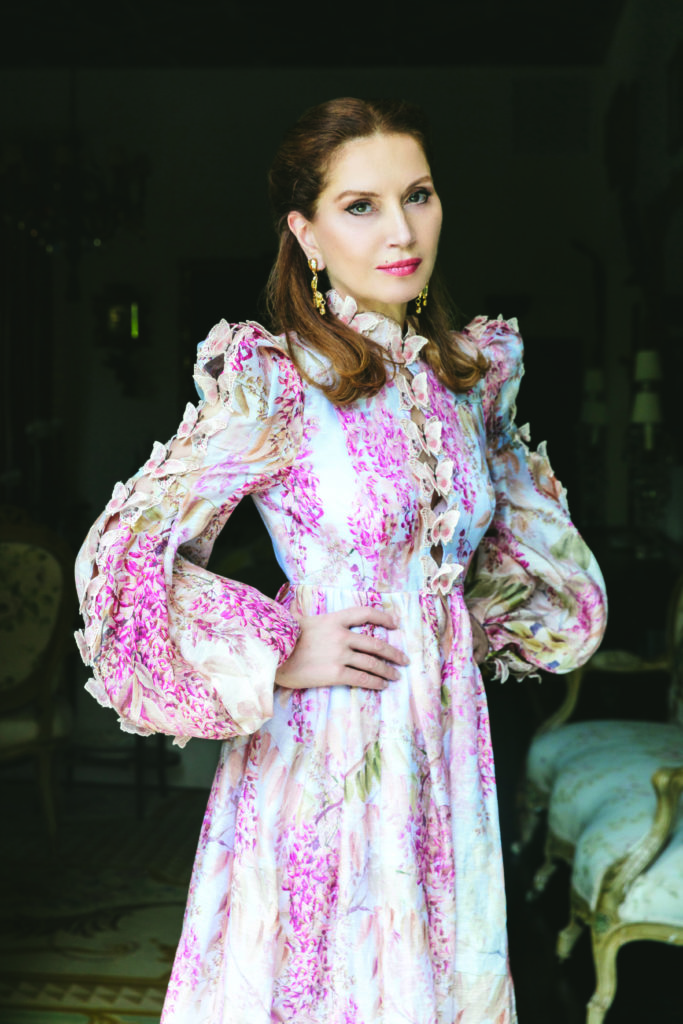 Jean Shafiroff, pictured here in an exquisite Zimmermann dress. PHOTOGRAPH BY NICK MELE PHOTOGRAPHY HAIR AND MAKE-UP BY SALON MARGRIT, PALM BEACH
Jean Shafiroff, pictured here in an exquisite Zimmermann dress. PHOTOGRAPH BY NICK MELE PHOTOGRAPHY HAIR AND MAKE-UP BY SALON MARGRIT, PALM BEACH
Is bringing awareness to your charities important?
It is very important. I believe in promoting philanthropy and the work of many different charities.
When you speak to young women, what piece of advice do you give?
This same piece of advice is for men and women, but especially for women. Believe in yourself and do not let anyone ever tell you that you can’t do something. And if you are in a place where someone is putting you down all the time, do everything possible to get out of that environment. You should strive to be in a positive work environment where people motivate you, where people are kind to you and where people believe in you. Likewise, you must treat others with dignity and respect. You must also try to be helpful and try to motivate others. I suggest to everyone that they try to get a good education or learn a trade. If going to college and graduate school isn’t for you, you might think about going to a trade school. For example, go to beauty school. Never underestimate the possibilities of what you can do. Someday you might start your own business and be very successful. You might become a billionaire. You never know. Find something you love doing and where you can make a living. I think you must combine the practicality of what you want to do with the education it takes to accomplish it.
Do you aspire to anything in this next chapter of your life?
I aspire to be a better me, to work harder, and grow to a new level. I would love to have a national television show about philanthropy. That would be my dream. I think it would be immensely helpful to other people and I hope that this happens. I also aspire to write more books. I want to continue doing charity work and maybe do more public speaking.
For what do you want to be remembered?
I want to be remembered for the good work I did. Legacy should not be about the golf game you played, the tennis you played or the business you created; but for the mark you left to help others. There is so much suffering in this world and there is great disparity. We see a divide in every single country. It would be nice to be part of the movement to reduce that. How do we do that? By getting ourselves out of our comfort zone and giving back.
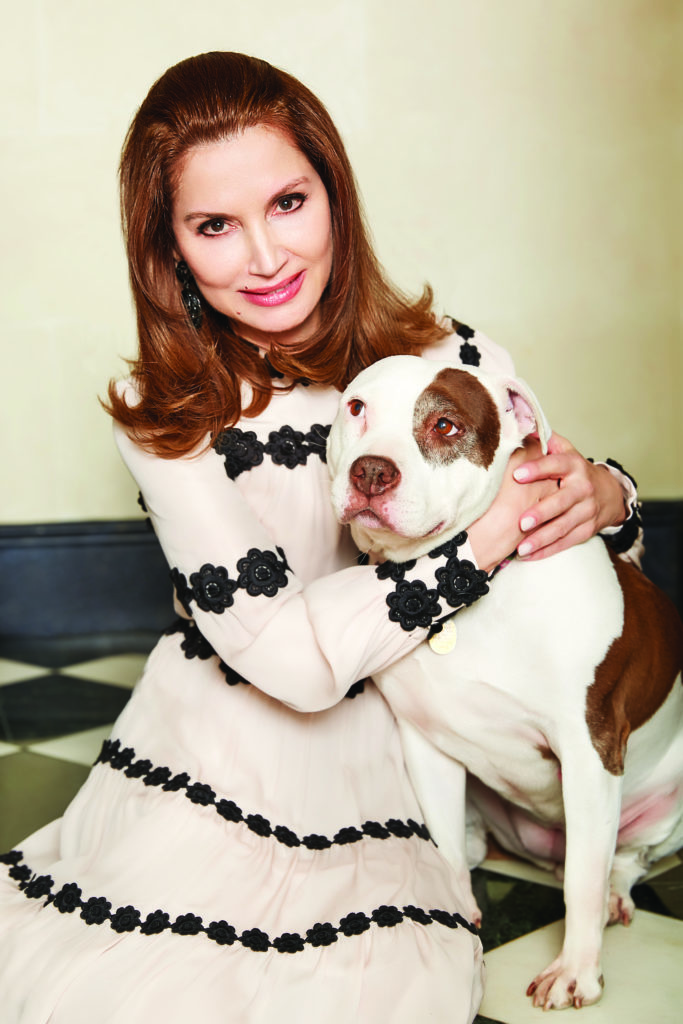 Jean with her adopted pit bull, Daisy, which the family rescued. Jean wears a Kate Spade white poplin dress with black floral cluster appliques. PHOTOGRAPH BY MICHAEL PANICCIA HAIR BY HENRY DE LA PAZ MAKE-UP BY KIMARA AHNERT
Jean with her adopted pit bull, Daisy, which the family rescued. Jean wears a Kate Spade white poplin dress with black floral cluster appliques. PHOTOGRAPH BY MICHAEL PANICCIA HAIR BY HENRY DE LA PAZ MAKE-UP BY KIMARA AHNERT
Editor’s note: Jean Shafiroff is an American philanthropist, animal advocate, social influencer, style icon, and socialite who has served on multiple national and regional boards. She is the ambassador and spokesperson for the American Humane Feed the Hungry Program. She has been called “New York’s First Lady of Philanthropy.”

